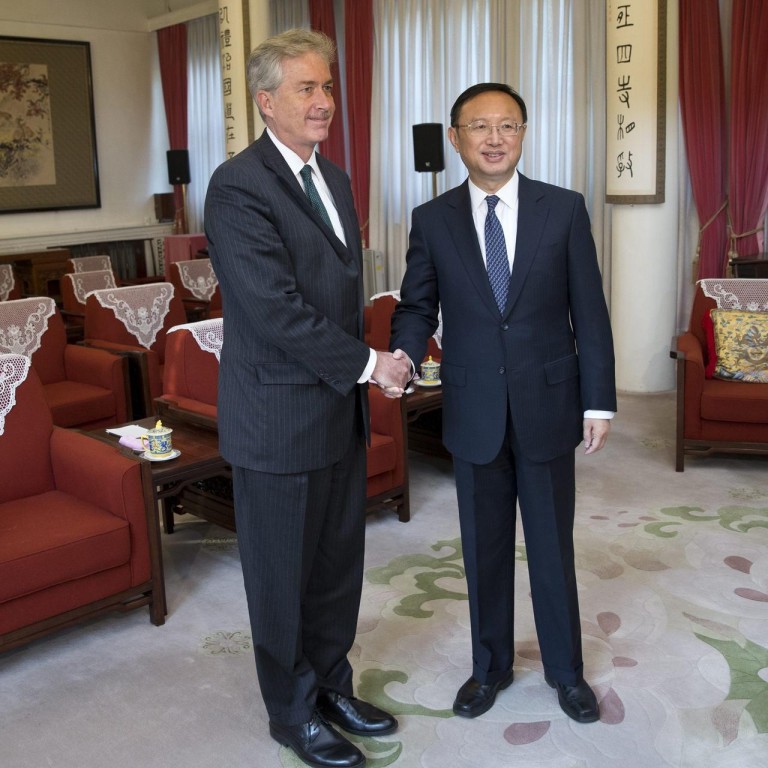
Regional security tops Sino-US talks in Beijing
Chinese envoys meet American counterparts in Beijing amid escalating tensions in Asia-Pacific following Japanese leader's war shrine visit
Top Chinese diplomats discussed regional issues with their US counterparts in Beijing yesterday amid rising tensions in Asia-Pacific over historical and maritime disputes.
A visit by the Japanese prime minister, Shinzo Abe, to the Yasukuni war shrine last month has complicated ties among Beijing, Washington and Tokyo, analysts say, while developments in North Korea continue to pose questions for regional security.
Vice-Foreign Minister Zhang Yesui discussed regional issues of mutual concern with US Deputy Secretary of State William Burns, said Chinese foreign ministry spokesman Qin Gang .
Burns was accompanied by the US assistant secretary of state for East Asian and Pacific affairs, Daniel Russel, who co-chaired the fifth Asia-Pacific Consultations with Assistant Foreign Minister Zheng Zeguang.
"The visit of Burns and Russel in the new year indicates that China and the US pay high regard to the development of bilateral relations and consultations on regional issues," Qin said. "The visit paves the way for positive momentum in the healthy development of Sino-US ties."
Burns also met State Councillor Yang Jiechi, who told him that this year offered important opportunities to develop Sino-US relations. Both nations should enhance political trust and properly resolve disputes, Yang said, according to Xinhua.
Burns kicked off his Asian tour on Sunday with a stop in South Korea, where he vowed to step up co-operation with Seoul over North Korea's nuclear programme.
Last month, Abe visited the Tokyo shrine, which honours 14 class-A war criminals among 2.5 million Japanese war dead.
Beijing denounced the visit as an attempt by Japan to return to military aggression. Washington said it was disappointed with Abe's action, which would "exacerbate tensions".
Ties between Beijing and Tokyo were already strained due to territorial disputes over the Diaoyu, or Senkaku, islands in the East China Sea. Beijing has also been locking horns with other neighbours over territorial claims in the South China Sea.
Wang Fan, a professor at China Foreign Affairs University, said the shrine visit had complicated the relationship among Beijing, Washington and Tokyo.
"For a long time, the US has been using Japan … to counterbalance China. But the shrine visit means Japan may be getting out of control," he said. "It is necessary for China and the US to present a united front in security matters, delivering a message that the Sino-US relationship is as significant as ties between Washington and its allies."
Shi Yinhong , an international relations professor at Renmin University, said Washington would refrain from taking tough action against Tokyo.
"The US still needs Japan to offset the impact caused by China's rise," he said.

